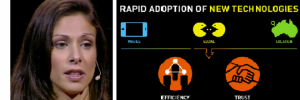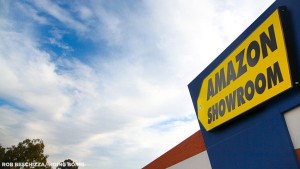In a recent TED talk, Rachel Botsman discussing an idea of using internet reputations as a currency in the future. Similar to a credit score, Rachel hopes to assemble all of the various points a person can get for micro transactions online – upvotes, stars, ratings, badges, etc. This concept of a reputation dashboard could benefit the online shoppers of the world infinitely by allowing potential customers, buyers, donors, and collaborators to more accurately judge a person at a glance.
An inspiring idea, the applications are incredible. By lubricating online services, this dashboard could accelerate self employment by creating more ‘super-people’ on eBay or Craigslist. Overall this would reduce unemployment, strengthening the world economy as a whole.
What I’m curious about is the business strategy behind this new idea. If I were in Rachel’s shoes designing this new profiling/resume system, I would charge an initial fee, then an additional fee for each online service someone wants on their profile. If such an idea caught on strongly, then everyone would be jumping on the boat – companies and individuals. If a seemingly insignificant amount was charged – $10 for a profile and $2 per service for example, having every internet-based self employer pay these fees could add up to a lot of money.
Regardless of whether this service becomes a success, let alone a reality, I still think it draws attention to a very important yet unrecognized power in the modern economy – the internets ability to self employ.



